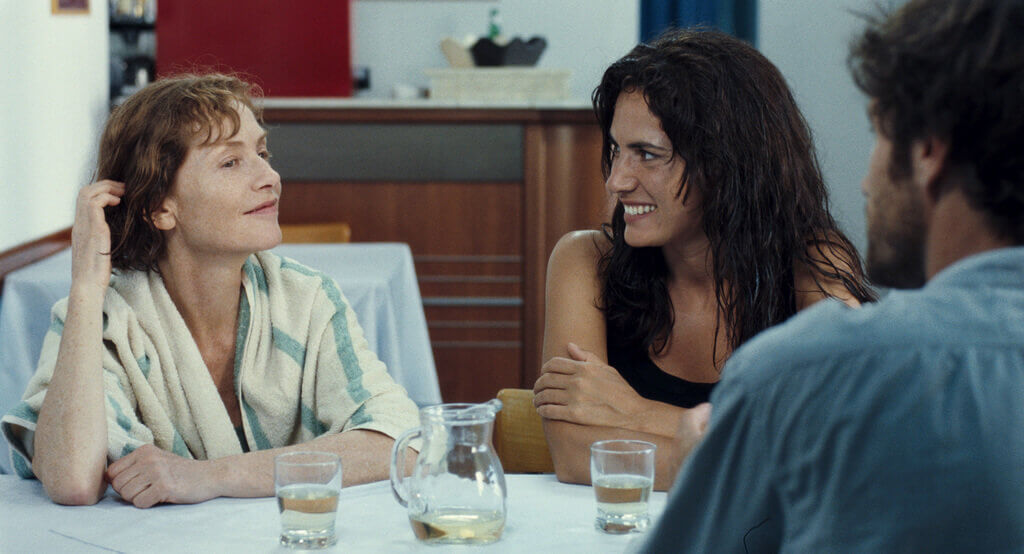Review: Villa Amalia (2009) ★★★★
One of the great things about watching a film starring Isabelle Huppert is that we, as audience members, never fully understand why she behaves the way she does. In many of her films (The Piano Teacher, Abuse of Weakness, and In Another Country, just to name a few), her characters commit to actions that seem bizarre, counterintuitive, or simply nonsensical. It stands to reason that, as an actress, Huppert probably gravitates towards these kinds of characters: the women who are repressed, adventurous, mildly unhinged and melancholic, but nonetheless playful and full of life. These performances are beautiful and sometimes so absurd that they feel comical, but they are often nothing short of perfection.
In Benoît Jacquot’s Villa Amalia, based on the novel of the same name by Pascal Quignard, Huppert plays Ann, a well-regarded musician who, after inadvertently witnessing her husband kiss another woman, decides to shed her old life and start an entirely new one. She goes to great lengths to rid herself of all modern conveniences and leave no trail behind. She sells her house and her prized piano, completely separates from her husband, Thomas (Xavier Beauvois), and sets off to begin again. Ann requires the help of her longtime friend, Georges (Jean-Hugues Anglade), but lies to him about her final destination, traveling to various locales before settling down on the island of Ischia, Italy.
What is most striking about this film is Ann’s complete lack of doubt; if put into a similar situation, most people would weigh the pros and cons, torture themselves with indecision, and probably accept that they could never truly escape their past lives in the end. In Villa Amalia, from the moment Huppert sees her husband’s transgression, her mind is made up and her plan set in motion. Even when Georges questions her motives and endgame, pleading with her to remain a part of his life, she shrugs him off, giving little explanation as to why she must never look back.

While it seems that Villa Amalia is a film about a woman finding herself after the pain of infidelity, it is actually an entirely different sort of film. The kiss that is the catalyst for Ann’s departure happens very early on in the story, is only briefly touched upon, and then, much as it is in Ann’s mind, is completely left behind, never to be brought back. Ann’s husband pleads for her not to leave, but she acts coldly toward him, as if he is a stranger asking for an inconvenient favor. She treats every aspect of her past life, from her beautiful home to her adoring fans, as unnecessary things, simply old baggage that must be discarded.
The film is not about infidelity so much as it is about escaping modernity. Much of the second act is dedicated to the many tasks that Ann must accomplish just to leave. She has to cancel credit cards, sell her house and possessions, change phone numbers (multiple times), book untraceable modes of transportation, secure that she has access to funds that are held safe under someone else’s name, and so on. The film functions as commentary on how tied down we all are with the responsibilities and “luxuries” of modern life. Much in the same way Werner Herzog laments the crippling weight of the modern world in Happy People: A Year in the Taiga (2010), Jacquot tells a story that decries the sheer effort and complications involved in abandoning one’s life in search of a new one. And once Ann reaches the beautiful island of Ischia, it makes all the frills of modern life seem that much less appealing.
With gorgeous cinematography and locales, as well as an exceptional performance by Isabelle Huppert, Villa Amalia is a must-watch film, particularly for those who dream of escaping life and getting off the grid once in a while.
Rating: ★★★★ out of 5
If you’d like to watch Villa Amalia , it is currently available to purchase via Amazon here.

